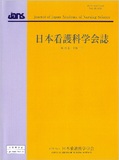Japanese
English
- 販売していません
- Abstract 文献概要
- 参考文献 Reference
- サイト内被引用 Cited by
要旨
目的:ケア提供者からみたエンド・オブ・ライフに対する高齢者の価値観の概念分析を行い,定義を明らかにすることを目的とする.
方法:日本国内の50文献を対象に,Rodgersの概念分析の手法を用い分析した.
結果:【他者から尊重される】【多様で個別性のある長い人生経験により物事の考え方が形成される】【その人なりの暮らし方に現れる】【残された時間を意識し揺れ動き変化する】【その人が望む最期を選択する決定要因となる】の5属性,5先行要件,4帰結が抽出された.
結論:本概念は「他者から尊重される多様で個別性のある長い人生経験により形成された物事の考え方であり,その人なりの暮らし方に現れ,残された時間を意識し揺れ動き変化しながら,その人が望む最期を選択する決定要因」と定義された.
Objective: To clarify the concept of values held by the elderly in their end-of-life stage seen from the care providers.
Method: A total of 50 references published in Japan were analyzed by using the Rodgers (2000) method of concept analysis.
Results: From the references we extracted 5 attributes (“awareness that the elderly are respected by others”, “ways of thinking that are formed by various and individualized long life experiences”, “appearance in the elderly's way of living”, “shaking and changing considering the remaining time”, and “determining factors in choosing their desired last term”), 5 prerequisites, and 4 consequences.
Conclusion: The concept of values of the elderly in their end-of-life stage seen from the care providers was defined as “a ways of thinking formed by various and individualized long life experiences that are respected by others, appearing in the elderly's way of living, and determining factors in choosing their desired last term, but shaking and changing considering the remaining time”.
Copyright © 2020, Japan Academy of Nursing Science. All rights reserved.


